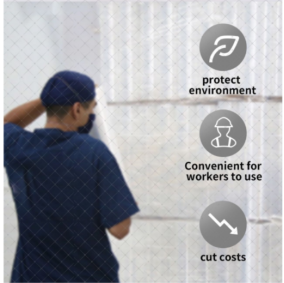Choosing the Best Storage Containers for Keeping Your Vegetables Fresh and Crisp
The Importance of Vegetable Storage Containers
In today’s fast-paced world, maintaining freshness in our produce is more crucial than ever. With an increasing emphasis on healthy eating, we find ourselves purchasing more vegetables while aiming to minimize waste. One of the most effective ways to extend the shelf life of these perishable goods is through the use of vegetable storage containers.
Vegetable storage containers are specially designed to maintain the quality, freshness, and nutritional value of your produce. Traditional storage methods, such as plastic bags or leaves your vegetables prone to moisture build-up, leading to mold and spoilage. In contrast, well-designed containers can keep your vegetables crisp, vibrant, and full of flavor for longer periods.
One of the key features of vegetable storage containers is their ability to regulate humidity. Most vegetables thrive in a specific level of moisture. For instance, leafy greens like spinach or lettuce require a higher humidity level to prevent wilting, while root vegetables, such as carrots and potatoes, prefer a less humid environment. Many modern vegetable storage containers come with adjustable vents that allow you to control the airflow, thereby creating an ideal climate for each type of vegetable.
Moreover, the material of the storage container also plays a significant role in preserving freshness. Containers made from breathable materials, such as glass or BPA-free plastic, can help prevent condensation inside the container. This is important because excess moisture can lead to bacterial growth, resulting in spoilage. Additionally, glass containers have the added benefit of being non-reactive, ensuring that your vegetables maintain their taste and nutritional quality.
vegetable storage containers

Another advantage of using vegetable storage containers is the organized storage they provide. A well-organized fridge makes it easier to find what you need quickly, reducing the chances of overbuying and leading to waste. By designating specific containers for different types of vegetables, you can keep track of what you have on hand, which encourages you to use them before they spoil. This not only helps in reducing waste but also saves money in the long run.
In addition to prolonging the life of your vegetables, storage containers also promote a more environmentally friendly approach to food storage. With reduced waste from spoiled produce, you are contributing to a reduction in landfill waste. Many vegetable storage solutions are also reusable and designed to last, helping reduce the reliance on single-use plastic bags.
When choosing vegetable storage containers, there are a few things to consider. Ensure the containers are the right size for the vegetables you plan to store. Investing in a variety of sizes can be beneficial, as different vegetables have varying dimensions. Furthermore, look for containers that are easy to clean and dishwasher safe, which makes the maintenance process hassle-free.
In conclusion, vegetable storage containers are an essential tool for anyone looking to enhance their culinary experience while minimizing waste. By maintaining the freshness and nutritional quality of your vegetables, these containers not only help you save money but also contribute to a healthier lifestyle. With the right containers, you can enjoy the benefits of fresh produce while supporting sustainable practices. As we continue to embrace healthy eating, investing in high-quality vegetable storage solutions should be a priority for every home.
-
Stretch Film Solutions: A Comprehensive GuideNewsJun.03,2025
-
Stretch and Shrink Packaging SolutionsNewsJun.03,2025
-
Revolutionizing Packaging with Modern Wrapping SolutionsNewsJun.03,2025
-
Innovative Solutions for Silage and Window TintingNewsJun.03,2025
-
Efficient Packing with Stretch Wrap SolutionsNewsJun.03,2025
-
Effective Packaging with Stretch Wrap SolutionsNewsJun.03,2025
-
Have the freedom of customizing your custom mailers any way you want! Our dedicated packaging support will help deliver you the mailing experience you need to elevate your shipping experience to the next level! Start making a strong impression on your customers and stand out from your competitors! -
LIYA uses high quality raw materials which directly purchased from large enterprises domestic and overseas such as PetroChina, Sinopec, Sabic, Equate, ExxonMobil, Dow Chemical, Total, and Borouge, ensuring the price advantage and quality of the raw materials. -
LIYA uses high quality raw materials which directly purchased from large enterprises domestic and overseas such as PetroChina, Sinopec, Sabic, Equate, ExxonMobil, Dow Chemical, Total, and Borouge, ensuring the price advantage and quality of the raw materials.





